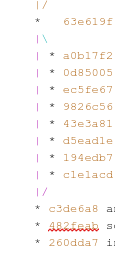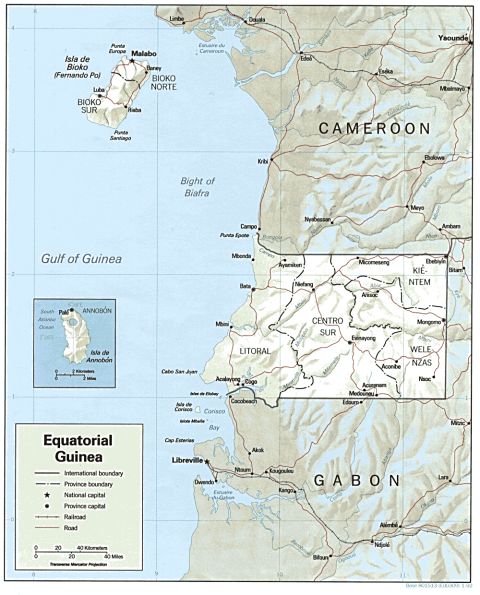Mark Dominus (陶敏修)
mjd@plover.com
I have another blog that doesn't suck.
Archive:
| 2023 | JF |
| 2022: | JFMAMJ |
| JASOND | |
| 2021: | JFM |
| 2020: | JFMAMJ |
| JASOND | |
| 2019: | JFMAMJ |
| JASOND | |
| 2018: | JFMAMJ |
| JASOND | |
| 2017: | ND |
Comments disabled
I recently wrote:
lately [my brain] has been considering the triphthong in an exaggerated Southern U.S. pronunciation of “grits”: something like “gray-ee-uhts”.
But I wasn't sure if I was making this up, or if my brain was being a supercilious Yankee asshole. I considered adding that I associated that pronunciation with Louisiana, but I was afraid I was already too far out on a limb.
But it seems that I wasn't making it up, at least not this time, and that it is associated with Louisiana, among other places. I did a search for “u.s. regional dialect "triphthong"” (note nothing in there about ‘Southern’) and found that this regional triphthongization is a thing everyone knows about. (“Triphthongization”, wow.) Dialect blog says:
Coastal/Lowland Southern English
Vowel breaking. This means that in words with short vowels like cat and dress, these vowels can turn into diphthongs (or even triphthongs). So cat can become IPA kæjət for example (i.e. “ka-jut”).
Dialect blog may not be a reliable or authoritative source, but such sources are easy to find. For example, Sounding Southern (Rachael Meghan Allbritten, 2011) says, of a 24-year-old woman in Montgomery, Alabama, “Sierra has some extremely high /ɪ/ tokens such as her triphthongal kid”. (The vowel there is the same as in grits.) Later on she mentions further examples: cat [kæɪjət], lip [lɪjəp], hill [hɪjəl], ill ɪjəl], bet [bɛjət], hell [hɛjəl], and cents [sɪjəns], and others.
I need to be careful not to let this confirmation go to my head. I am not in general very good at hearing this kind of thing, or at understanding what I have heard. Allbritten says:
To non-linguists, and indeed many linguists, the Southern Drawl is associated with or equivalent to the oft parodied pronunciation of a word like cat as “cayut” or fed as “feyud.”
My current non-understanding of phonology and IPA notation is a serious hole in my knowledge, which continually prevents me from understand other things as well as I want to. I should make a bigger effort to fix this.
Today I passed a truck that said “PENNSYLVANIA PLANT PEST SURVEY”.
“How long have you been a plant pest?”
“About six months.”
“And on a scale of one to ten, with ten being the most satisfied, how satisfied would you say you are with your role as a plant pest?”
Actual screenshot:

In my article about Planet Haskellers giving me the side-eye and wondering if I might be an impostor, I was groping around for a particular literary reference but I couldn't quite come up with it. But here it is.
One of my favorite books as a child was Granny's Wonderful Chair (Frances Browne, 1857). In one of the stories therein, “The Christmas Cuckoo”, the protagonist, a cobbler, has received magical leaves:
They that get one of them keep a blithe heart in spite of all misfortunes, and can make themselves as merry in a hut as in a palace.
One day a great lord happens to meet and speak with the cobbler, whose name is Spare, and the leaves work their magic on him:
How it was nobody could tell, but from the hour of that discourse the great lord cast away his melancholy: he forgot his lost office and his court enemies, the king's taxes and the crown-prince's toes, and went about with a noble train hunting, fishing, and making merry in his hall, where all travellers were entertained and all the poor were welcome.
Spare becomes famous, and the king commands him to come visit. He sews up the leaves in the lining of his leathern doublet and repairs to court, where he is a great success:
The princess of the blood, the great lords and ladies, ministers of state, and judges of the land, after that discoursed with Spare, and the more they talked the lighter grew their hearts, so that such changes had never been seen at court. The lords forgot their spites and the ladies their envies, the princes and ministers made friends among themselves, and the judges showed no favour.
But then the doublet with the magic leaves is lost.
That very day things came back to their old fashion. Quarrels began among lords, and jealousies among the ladies. The king said his subjects did not pay him half enough taxes, the queen wanted more jewels, the servants took to their old bickerings and got up some new ones. … Nobles began to ask what business a cobbler had at the king's table, and his majesty ordered the palace chronicles to be searched for a precedent. … His majesty, being now satisfied that there was no example in all the palace records of such a retainer, issued a decree banishing the cobbler for ever from court…
I similarly wonder if the day will come when I too will have to escape Planet Haskell by climbing out a window.
A few weeks ago I posted here about using a bluetooth keyboard to enter text on my phone, and how strangers came up to me to ask about it. I found it remarkable that people found it remarkable, because I didn't think I was doing anything unusual. Bluetooth keyboards exist; the phone has a bluetooth receiver, and this was certainly one of its intended uses. But I suppose I really have very little idea how other people use their phones.
Here's another example of the same phenomenon. At work I use a laptop, hooked up to an external monitor. I keep the external monitor in portrait orientation, 1080 pixels wide by 1920 tall. Many people find this remarkable. They ask me if the monitor is special (“where did you get that weird skinny monitor?”) or if it requires special software. But no, it is a totally stock monitor, turned sideways; most monitors come with a stand that has a rotation joint so that you can turn the screen sideways. I am using Linux to drive the display, but I know Microsoft Windows will let you tell it you want one of the displays rotated. They don't even hide the setting. (In fact I think there's even a hotkey for it, because when Katara was little, she found it by accident and I had trouble finding out how to undo it again.)
I don't know what to conclude from this.
In 2006, back when Forbes was still worth something, they ran an article on “The 20 Most Important Tools”, and I wrote a long critical discussion of their choices.
I wrote to the author to find out what tools they had considered that hadn't made the top 20, and one was “remote control”. I said:
I don't know exactly what was intended by "remote control", but it doesn't satisfy the criteria. The idea of remote control is certainly important, but this is not a list of important ideas or important functions but important tools. If there were a truly universal remote control that I could carry around with me everywhere and use to open doors, extinguish lights, summon vehicles, and so on, I might agree. But each particular remote control is too specialized to be of any major value.
Well, here we are only 12 years later, and there is a truly universal remote control that I can carry around with me everywhere and use to open doors, extinguish lights, summon vehicles, and so on.
I hadn't fully appreciated how much this had changed until yesterday. I was leaving the house where I have my piano lesson, and I passed by one of the inhabitants. He had bought a new grill and smoker, and was in the process of pairing his phone with it.
I wonder what I would have thought in 2006 if someone had told me that in 2018 a working-class guy in the Philadelphia suburbs would have an Internet-capable barbecue grill that could be remote controlled from his pocket computer.
Truly, we live in an age of marvels.
“What have you been reading lately?”
“The Books of Samuel.”
“What's that?”
“You know, David and King Saul. That's where the story about David and Goliath comes from.”
“I thought you didn't believe in that stuff.”
“I don't believe in Hamlet either, but that doesn't mean it's not important to read it.”
For some reason that is not quite clear to me, my main blog is syndicated on Planet Haskell. Planet Haskell's stated mission is to carry articles not just about Haskell but about the sorts of things that people in the Haskell community are thinking about. Nevertheless I still feel a little uncomfortable, almost every time I post, knowing that readers of Planet Haskell will now be treated to an summary of English history for the year 1533, a speculation about how to obtain the plutonium from 25,000 pacemakers, or an article on the Hebrew equivalent of “Joe Blow”. I imagine that as post after post goes by, more and more people start to frown and wonder what I am doing there, and maybe they start sharpening their pitchforks and inventorying their tar and feathers.
But then every once in a while — a couple of times a year, perhaps — I post something like yesterday's article about coherence spaces. In my mind, the people with the pitchforks put them down again and say “oh, I remember now, it's that guy.”
I used to tell people I was a “failed mathematician”. I went to school for mathematics, and I liked the mathematics part but not so much the school part. When I got out of school I wasn't sure what I wanted to do with myself, but I was sure what I didn't want to do, and graduate school was near the top of that list. So I didn't go to graduate school, I didn't get a doctorate, and I didn't become a professional mathematician. Which as I think I've said before, is probably for the best, since I don't think I would have been that good at it — at best I think I would have been respectably second-rate.
Still I really love mathematics. I was sad when I told people that I was a failed mathematician.
But that all changed one day. I had read or heard the following claim:
A writer is anyone who writes, and who calls themselves a writer.
Some people disagree with this formulation. Trying to track down the source, I found a number of articles purporting to explain the difference between “a writer” and “someone who writes”. As a published, successful writer, I say fuck those articles. If you write, and you call yourself a writer, you are a writer. Maybe not a professional writer. Maybe not a published writer. Maybe not even a talented writer. But a writer nevertheless, and your writing is as fully legitimate as anyone's.
One day I decided that was true of mathematics also. Who is a mathematician? A mathematician is anyone who does mathematics, and who calls themselves a mathematician. I certainly did do mathematics, seriously, persistently, and almost every day. All that remained was for me to start calling myself a mathematician.
I started at once. I am a mathematician. Not a professional mathematician, not a published mathematician, and not even a particularly talented mathematician. But a mathematician nevertheless, and not a “failed” one.
It is a more accurate description of the real state of things, and it feels good to recognize that.
So first, in case you missed it:
The White House asked to borrow a van Gogh. The Guggenheim offered a gold toilet instead.
(The Washington Post, 2018-01-25)
Trump: “Those idiots! Don't they know I already have three?”
Melania: “Yours are stainless steel covered in gold Cadillac paint.”
Kyle Littler remarks:
I would totally follow these guys on Twitter
I find the thought of Samuel Johnson on Twitter intriguing but terrifying.
I'm so old, I remember when added sugar was considered a positive selling point for breakfast cereal, and was prominently featured in the names of Sugar Frosted Flakes, Sugar Smacks, Sugar Corn Pops, and Super Sugar Crisp.
I'm so old, I remember when Lucky Charms had only four kinds of marshmallows, and I remember when they first debuted the fifth. (Blue diamonds.)
I'm so old, I remember going to Barnes and Noble, back when they had only one store.
Among my favorite phrases of American English is:
They couldn't pour piss out of a boot
which is excellent all by itself, and the elaborated form
They couldn't pour piss out of a boot with the instructions printed on the heel
which is maybe a little overdone, but I admire its inventiveness. Who thought this up? It's genius. So specific, so evocative! It really calls to mind a picture of this person struggling to figure out how to pour piss out of a boot, which is fucking hilarious.
Poking around a bit in Google Books, the earliest citation I can find
is from
… I ain't got the sense to pour piss out of a boot.
There is more to the sentence, but Google won't tell me what it is.
The earliest citation for the longer form is in one of the selections in Cross Section 1947: A collection of new American writing, Edwin Seaver (ed.):
“Shit. These tenants ain't got sense to pour piss out of a boot with directions wrote on the heel. …”
There are 28 short stories in the collection, and the Google snippet doesn't give me enough information to identify which one. Copies are cheap and easy to come by, and I'm tempted to order one.
I think it's interesting that both of these early citations are about how someone ain't got sense to…. I wonder if they're both alluding to some earlier instance, maybe prominent at the time, that was phrased that way.
Watkin is better-known for writing the screenplay for Walt Disney's 1950 film version of Treasure Island.
Excerpted from the Wikipedia article:
The
Liver of Piacenza is a life-sized bronze model of a sheep's liver covered in Etruscan inscriptions, measuring 126 mm by 76 mm by 60 mm and dated to the late 2nd century BC.
The liver is subdivided into sections for the purposes of performing haruspicy; the sections are inscribed with names of individual Etruscan deities. The Piacenza liver parallels the Babylonian artefact [in the British Museum collection] by representing the major anatomical features the gall bladder, caudate lobe and posterior vena cava, of the liver as sculpted protrusions.
The outer rim of the Piacenza liver is divided into 16 sections; since according to the testimony of Pliny and Cicero, the Etruscan divided the heavens into 16 astrological houses, it has been suggested that the liver is supposed to represent a model of the cosmos, and its parts should be identified as constellations or astrological signs. Each of the 16 houses was the "dwelling place" of an individual deity.
I now crave a replica of the Liver, to keep on my desk, and I was going to complain that there was no way to fulfil this desire. But I found one on Etsy, which sounds like a joke, but isn't. The price is even reasonable. Truly, we live in an age of marvels.
Last Sunday I bought a whole pork shoulder with the idea of making it into stew, and then got a couple of pleasant surprises.
Katara came into the kitchen while I was browning the cut up pork cubes, and asked when it would be ready. I said not until tomorrow morning, because I was going to cook it overnight in the slow cooker. She said she was hungry and could she have some pork now.
I tried to figure out what to do about that, because I didn't know what you could do with a whole pork shoulder to render it suitable for immediate serving. I only know how to roast it or stew it.
My first thought was to give her some of the cubes I was browning, but I knew they wouldn't be cooked all the way through, so I planned to finish some of the browned ones for her by boiling. But while I was waiting for the water to boil I had what seemed like a better idea: I just cut some thin slices off the shoulder and fried them with a little salt and pepper. Katara gave this a thumbs up.
I don't know why it was so hard for me to think of this, and there seemed to be no reason why it wouldn't be good. But I had never done it before and I had never heard of anyone else doing it. This is a strange place to have a blind spot.
My plan for the stew changed a couple of times while I was getting it
ready. My default for winter and fall is to put in a bunch of apples
and build it up from that. But then I had the idea to maybe I was
going to make it with
The stew eventually contained:
Pork shoulder, cubed and browned
½ pound baby carrots, whole
3 leeks, cut up and caramelized
1 large bok choy
1 starchy potato, peeled and cubed
6 whole cloves of garlic
Soy sauce
Five-spice powder
Powdered ginger
Salt
I was concerned about what would become of the bok choy: Was I adding it too soon? Would it just vanish? Would it turn into slime? It was fine, I like the result and would do it again. I was also worried that when I put in the salt I was oversalting, because I had momentarily forgotten that I had already put in the soy sauce. But that was okay too; later I added more soy sauce. I think it would have been better to cut up the garlic a little bit, but it was fun to toss in the cloves from across the kitchen. Baby carrots do not have a lot of flavor but that was what we had; that's also why I only put in only one potato. I wanted to add some black pepper but Toph refuses to eat anything with even the smallest amount of black pepper.
I was very pleased with the result. Katara can be very fussy, but she gave the stew a passing grade also.
Sometimes these things work out, sometimes they don't. Looking for an apt quotation to express my philosophy about the situation, I found:
Despising the good gifts of the bountiful God is not piety. He giveth us all things richly to enjoy.
— Julie P. Smith, Widow Goldsmith's Daughter, 1888.
(The second line is quoting 1 Timothy 6:17.)
I believe, quite deeply, that when the stew gods hand you a slightly-wilted head of bok choy, you disdain their bounty at your own peril.
A few days ago I was wondering if there are any (nontrivial) integer solutions of $$a^2 - ab + b^2 = 1\tag{$\spadesuit$}$$
but I couldn't do it in my head. I had the idea it would be pretty easy if I tried on paper, and yes, it was one of those ones where you don't even really have to think, you just push the symbols around.
From !!(\spadesuit)!!, adding or subtracting !!ab!!, we get both $$\begin{align} a^2 + b^2 & = 1 + ab \\ (a-b)^2 & = 1 - ab \end{align}$$
and since in both cases the left sides are non-negative, we have both !!1+ab\ge 0!! and !!1-ab \ge 0!!, so !!-1\le ab \le 1!!, and we are done.
I thought about it a little more and decided that perhaps a more elegant way to put it was: Multiplying !!(\spadesuit)!! by 2, we get $$\begin{align} 2a^2 - 2ab + 2b^2 &= 2 \\ a^2 + b^2 + (a-b)^2 &= 2 \\ \end{align}$$
and then since we have three squares that sum to 2, one must be zero and the rest must be 1.
Probably there is a nice geometric proof also.
But supposedly in this documentary, The Joy of the Bee Gees, he also describes the Bee Gees as having written “some of the most moving, touching lyrics ever put to paper”.
I don't know what to make of that or how to reconcile these two views.
I may have to watch the documentary and find out.
There is a flowering plant, Morea vuvuzela, named in honor of South Africa's hosting of the 2010 World Cup. The vuvuzela is an exceedingly loud and obnoxious plastic trumpet, played en masse by African football fans. (“Played” is not really the right word. Tooted perhaps? Honked? Blatted?)

I was disappointed to find, however, that the flower itself does not resemble a vuvuzela.

| 
|
| Morea vuvuzela | Not Morea vuvuzela |
The word “fuchsia” is often misspelled. If you have trouble remembering how to spell it, this advice may help:
Fuchsia is named after a German botanist, Leonhart Fuchs.
So it's just the name “Fuchs” (German for “Fox”), with “-ia” stuck on the end, similar to other familiar plant names, such as:
- Forsythia (William Forsyth),
- Macadamia (John Macadam),
- Zinnia (
Johann Gottfried Zinn ), - Watsonia (Sir William Watson),
- Bougainvillea (
Louis Antoine de Bougainville )
and many more. The scientific name for the Black-eyed Susan is Rudbeckia hirta, (given by Linnaeus!) after Olof Rudbeck and his father.
Wisteria is a bit of an oddity. It is (supposedly) named for Caspar Wistar, but the the spelling is a little different. Wikipedia has the story, such as it is.
This technique sometimes helps me with even harder-to-spell words. For example, what's the “E” in “E. coli”? It's Escherichia, which I would find impossible to remember let alone spell, if I didn't remember it was named for Doctor Escherich.
When Katara was small, maybe around six years old, she asked me what “fine” meant. I said it meant “good”. She was puzzled. “Then why do people only say something is fine when they are angry about it?” Huh, yeah, they do that a lot, don't they? Good point, kid! I had to revise my answer.
I realized there was a good chance that my kids had been misinterpreting what I meant when I said something they suggested was fine, because I don't use that word in that way: “Is it okay if I clean this up after dinner?” “Yeah, fine.” Did they hear it as passive-aggressive sarcasm?
(Uh oh, now I have to check to see if I do use it the way I think I do. A quick sampling of blog articles suggests that most or all my uses of “fine” are sincere.)
This reminds me a bit of the moment, decades ago, when I realized that when my sister said “Could you please do (something)” she did not mean to suggest that she was exasperated with my not having done it yet. But for some reason that's what the initial ‘C’ (instead of ‘W’) meant to me.
Last week I ran into one of the small but delightful things about Phaildelphia that New York does not have, at all. When I first moved to West Philadelphia, almost 30 years ago, there was a small store on 47th Street called “The Carrot Cake Man”. The Carrot Cake Man is a handsome African-American gentleman, perhaps ten or fifteen years older than me, who wears a hat. His name, I have learned, is Vernon Wilkins. In his store, the Carrot Cake Man sold the carrot cakes that he made himself. I don't recall that anything else was sold there.
The store lasted a long time — 19 years — which might be surprising but for two facts. First, rents in West Philadelphia were much lower in those days. But more important, the carrot cake was really good. I don't even like carrot cake. But I liked the Carrot Cake Man's carrot cake and I still do. If you wanted carrot cake, it was best to get there early. The Carrot Cake Man would sell out, every day.
After the Carrot Cake Man closed his store, he continued to sell his carrot cakes through other outlets. In recent decades his habit has been to make trays of cupcake-sized carrot cakes and to sell them on the street or on public transportation. Every once in a while I will have a lucky day and meet the Carrot Cake Man on the way from somewhere to somewhere else.
Last week I was on the way home from work, waiting to board the #34 trolley at 15th Street, and there on the platform was the Carrot Cake Man. “Hey!” I exclaimed in delight. “It's the Carrot Cake Man!” I was very excited, because I had not seen him in a long time. For a moment I was afraid he would not get onto my trolley. I was just preparing to get off and to accost him on the platform when he boarded. I bought six small carrot cakes. They cost $1 each. They are still delicious.
If New York has anything like the Carrot Cake Man, I can't think what it would be. And it seems unlikely that any New York institution could be quite the same, because New York is too big. Individuals like the Carrot Cake Man vanish into it like drops of rain into the ocean. But Philadelphia is not quite so big. You can run into Carrot Cake Man once in a while, purely by chance, and you can mention him to someone else and expect there is a good chance they will know who you mean.
This article from the Chestnut Hill Local discusses the Carrot Cake Man, who has been making and selling carrot cake full time since 1980.
In addition to conducting my affairs with peaceful aplomb, I now have another low-key life goal: I hope that when I am gone, nobody ever thinks to describe my death as “convenient though entirely natural”.

| = | 
|
Tags: itsTrue
When a program on an IBM mainframe is terminated because of a segmentation violation, and dumps core, it is called an ABEND. Supposedly this was an abbreviation of “abnormal end” but everyone knows that it is actually the German word for “evening”. This is because when the afternoon has worn away, and der ABEND ist gekommen, the system operators want to go to O'Reilly's Pub, and they ABEND your programs so you will go home.
I was once writing documentation in which I discussed a method for aborting a process or an operation of some sort.
One of the early reviewers suggested that the word “abort” might be offensive or at least jarring, bceause of its connection with aborted pregnancies, and I should consider changing it.
I was puzzled. “Isn't ‘abort’ the generic term for anything that is interrupted before it completes? And the use of ‘aborted’ for aborted pregnancies is only one application of the term, equal in importance to all the others?” I don't remember the eventual outcome of the discussion.
But I was mistaken. Last week I wondered about the etymology of ‘abort’: it looked like the ‘ab-’ might be the Latin ab- prefix that means “away from”, but what is ‘-ort’? So looked it up, and it turns out that I was mistaken. The interrupted pregnancy is the canonical example of an aborted process, to which all other applications of ‘abort’ are analogized. The original Latin is abortus “miscarriage”, from aborior “to miscarry”. The ab- is indeed the prefix, and -orior is to rise or get up. (Akin to English “orient”, the east, where the sun rises.)
Harper's Etymology Dictionary says that the term first appeared in English in the 1570s, and by 1610 it was being uesd for intentional terminations more generally. Oddly the Latin word for intentional termination of pregnancy was not related to aborior; it was abigo, abigere “to drive away”.

| = | 
|
| Seebeck |
A famous story tells how a very young man once came to Mozart and asked how to build a nuclear device. “Building a nuclear device is very difficult,” said Mozart. “Perhaps you should start with something easier, like a fertilizer bomb.”
“But you built your first nuclear device when you were six years old!” protested the very young man.
“Yes, but I didn't have to ask how.”
Mathematicians sometimes bemoan the early death of Évariste Galois,
who invented group theory and died in a pointless duel immediately
after, at the age of twenty. I am more saddened by the early loss of
But if I had to pick one scientist or mathematician to rescue from a
premature death, it would be
Here's what I wrote about him on The Universe of Discourse:
Moseley is better-known for discovering that atoms have an atomic number, thus explaining the periodic table. The periodic table had previously been formulated in terms of atomic mass, which put some of the elements in the wrong order. Scientists guessed they were in the wrong order, because the periodicity didn't work, but they weren't sure why. Moseley was able to compute the electric charge of the atomic nucleus from spectrographic observations. I have often wondered what else Moseley would have done if he had not been killed in the European war at the age of 27.
About a month ago I posted a long lament about the difficulty of figuring out what was going on with my bluetooth keyboard. I had made some additional progress on it by the following day, but I'm just getting around now to writing it up.
Norman Yarvin wrote to suggest that I look at the ArchLinux wiki page about keyboard configuration. This was extremely helpful. I had mentioned “the wild and uncharted jungles of the Linux keyboard system… I wish I could draw you a map here, but I don't have one.” The ArchLinux page is not a map, but it is helpful advice from an experienced guide. In particular, there are a lot of examples.
One cause of my problems is that I was trying to set the
raltoption. But this is misspelled: it’s notralt, it’scompose:ralt, because it’s declared in theraltsection of thecomposefile. (That's/usr/share/X11/xkb/symbols/compose.) I didn't realize I had this wrong, becausesetxkbmapis happy to set that option anyway, even though it means nothing.In the previous article, I even asked about this:
If the problem is that it doesn't know what
raltmeans any more, why doesn't it just say so? Was I supposed to write it ascompose:ralt? Maybe?If
setxkbmaphad issued some kind of warning when I misspelledcompose:raltasralt, instead of silently doing something useless that ultimately had no effect, I would have avoided around half of my problems in this area.This leads us into my complaint that
setxkbmap -queryandsetxkbmap -printboth seem to do the same thing, the manual does not explain the difference, but they produce inconsistent output. I said:one form will say that the keyboard options include some things, and the other form will say that they don't.
The manual describes them:
-print Print a complete xkb_keymap description and exit -query Print the current layout settings and exitThe
-queryoption just spits back the options you set. The-printoption tries to resolve those options using the files under/usr/share/X11/xkband to use those files to translate the options into a format acceptable to thexkbcompcommand.If some of your options are unresolvable (and therefore meaningless) the
-printoption will silently discard them. I had set the meaninglessraltoption, so it was omitted from the output of-printbut not from the output of-query.I wept openly as I wrote:
While writing up this section, the mappings on the bluetooth keyboard went away. …
…
I was going to say more about this, but somewhere in the previous paragraph the bluetooth keyboard started working properly again. Fuck if I know.
I did some more digging on this and I think I found the answer: it was just a hardware hiccup. The Bluetooth connection was briefly dropped, and when it reconnected the keyboard configuration was reinitialized. Since my configuration file contained the wrong things, the configuration was reinitialized incorrectly.
Why did it switch back though? No idea.
I issued a threat about what I would do “if you send me mail that tells me I was stupid because everyone knows…”. Nobody dared do this.
But Daniel Wagner sent me a link to a slide presentation by Daniel Stone, one of the principal authors of the Wayland display server. Of particular interest is the sentiment on slides 70 and 71:
three people on this earth understand X input
really wish I wasn't one of them
The rest of the presentation was very interesting. I said to M. Wagner:
I have been wondering for years if X's vaunted network transparency was as big a failure as it seemed: an interesting idea, worth trying out, but one that eventually turned out to be more trouble than it was worth. Of course, you can run the client on a different machine than on the server, but hardly anyone ever does, because the performance is bad. But I wasn't sure if maybe there were super-important applications of remote X clients that I wasn't aware of.
But this person's view seems to be that I was correct, it was a mistake.
Stone's presentation confirmed this idea, and some other ones I had had about X as a failed design.
I asked:
Is there a way to address the two keyboards separately? I don't know.
I think the answer here is, get the ID number for the keyboard you want from the
xinputcommand, and then use that with the-deviceoption ofsetxkbmap. Thesetxkbmapman page does not mentionxinput, by the way. You Just Have To Know.At one point I got everything into the right state and asked “was it just a fluke?” Yeah, pretty much. I had added the meaningless ‘ralt’ option and sent a udev trigger to reinitialize the keyboard. But in addition to reinitializing itself with
raltit also reinitialized itself from wherever else it was supposed to. (I think.)I ended with the following questions:
Can I find out what device file to use in the [
udev trigger] command, without needing a human being eyeball the log file? I don't know.I still don't know this, but it seems less important now that I don't need to use
udevany more.Will my change to
/etc/default/keyboardpersist past my next login? I don't know.Xorghas a habit of overwriting my changes to its configuration on server startup, but this change persisted.Why did it fix the control-key mapping as well as the compose key, when all I said to do was to add the
raltoption? I don't know.Probably it was some unrelated reinitialization, and
raltitself was a red herring.
The correct solution was to add
compose:ralt(the correct name of the option) to theXKBOPTIONS=line in/etc/keyboard/default, which now looks like this:XKBMODEL="pc105" XKBLAYOUT="us" XKBVARIANT="" XKBOPTIONS="compose:ralt,ctrl:nocaps" BACKSPACE="guess"I think at some point I had
raltin there instead ofcompose:ralt, andsetxkbmapwas happily and silently throwing it away.
The Bluetooth keyboard's up-cursor key has Home printed on it in
blue, suggesting that Fn+Up will send a “Home” message, but it seems
not to do that. I'm trying to fix it, because I am a glutton for
punishment.
I have made some progress. I have gotten Fn+Up to come through to
Emacs as Super-A, which may not sound like much but is actually a step
in the right direction. It means I have correctly configured the Fn
key as a third-level shift (which Emacs calls “Super”) and then the
up-cursor is probably sending ESC [ A or something like that.
With the help of the ArchLinux Wiki page, I will get it figured out sooner or later. Or I might decide that it would be more fulfilling to run amuck with an ax. We'll see.
Thanks to Norman Yarvin, Daniel Wagner, and especially to the authors of the ArchLinux Wiki page.
There are two countries named after the Equator.
One is Ecuador. The Equator passes right through Ecuador, just a little bit north of the capital, Quito. Very good.
The other is The Republic of Equatorial Guinea. The southern border of Equatorial Guinea follows the 1° parallel, and the southernmost point in Equatorial Guinea is the Isla de Corisco, at a latitude of 0°55”2” north. The equator does not pass through any point of Equatorial Guinea.
If I were in charge of naming a country, I think I would have done better than this.
This guy spent two minutes up front building suspense and telling us how awesome this was going to be once he finally got around to showing it to us.
This reminds me of the joke about the woman who divorces her husband. He is a software salesman, and all he would do was sit on the edge of their bed and tell her how great it would be when she finally got it.
This is a screenshot of a document that included sample output from
git log --oneline --graph:

A few years back I was excited to learn that there was a video that would teach me how to remove the seeds from a pomegranate in ten seconds.
I was less excited when I learned that the video was four and a half minutes long. It shouldn't take more than sixty seconds to explain how to do something that only takes ten seconds to demonstrate. Maybe something like this:
“Here's how to seed a pomegranate in ten seconds: Cut the pomegranate like this.”
THUNK THUNK
“Hold half of the pomegranate over a bowl. Take a wooden spoon.”
WHAP WHAP WHAP WHAP WHAP WHAP WHAP WHAP WHAP WHAP WHAP WHAP WHAP WHAP WHAP WHAP WHAP WHAP WHAP WHAP WHAP WHAP WHAP WHAP WHAP WHAP WHAP WHAP WHAP WHAP
“Now the other half.”
WHAP WHAP WHAP WHAP WHAP WHAP WHAP WHAP WHAP WHAP WHAP WHAP WHAP WHAP WHAP WHAP WHAP WHAP WHAP WHAP WHAP WHAP WHAP WHAP WHAP WHAP WHAP WHAP WHAP WHAP
“There you go! Thanks for watching.”
Instead, this guy spent two minutes up front building suspense and telling us how awesome this was going to be once he finally got around to showing it to us. Then he spent another minute on the back end waffling around instead of just turning off the camera.
Many years ago I gave a conference talk in which I complained that conference speakers waste everyone's time introducing the subject before they work around to the point. I wish I'd used that pomegranate video as an example.
Two or three years ago Lorrie came home while I was setting up the christmas tree. I said “Guess what was the best thing that happened to me today?”
“What?”
“The tree almost slid off the roof of the car onto I-95.”
I had another one of those today. I was driving on Baltimore Avenue, which didn't look too slippery, but as I braked on a slight downward grade behind a line of cars stopped at a red light, the brakes stuttered on the wheels and the car didn't slow down. I pumped the brakes and it didn't help, and at that moment I realized I was going to hit the car in front of me.
And then, with maybe one second before impact, I reached down and yanked the hand brake, and my car stopped without hitting anyone!
If anyone ever criticizes the amount of time I have spent playing video games, I will have an answer all ready.
I just posted an article about a line-shuffling command I wrote no
later than 2006. Adam Sjøgren immediately
wrote to me to point out that there is a shuf(1) command in the GNU
coreutils package, and therefore pre-installed on my very same
GNU/Linux system. This by itself wouldn't be worth a followup post,
but M. Sjøgren did a little software archaeology himself and
discovered:
Interestingly, it was added to coreutils on August 8, 2006 …
Author: Paul Eggert <eggert@cs.ucla.edu> Date: Tue Aug 8 22:22:47 2006 +0000 New file, introduced for shuf, sort -R, and/or shred.The very day after your file's timestamp:
% ls -l $(which shuffle) -rwxr-xr-x 1 mjd mjd 91 Aug 7 2006 /home/mjd/bin/shuffle(!)
(!) indeed!
Given the nature of these tools, it has to be coincidence, right? :-)
Paul Eggert will be hearing from my lawyer first thing Monday morning.
Just now I needed a utility that would read standard input and emit
the same lines in a random order. “Eh,” I said. “Maybe Linux comes
with one already. I wonder if there's a shuffle command?”
So I ran which shuffle and got an encouraging response:
% which shuffle
/home/mjd/bin/shuffle
Have I been in this movie before? I was quite hopeful at this point;
I guessed that either that shuffle would be exactly what I wanted,
or else it would shuffle its command-line arguments and print them on
a single line. So I ran:
% shuffle
to see what would happen, and it did nothing, presumably because it was waiting for standard input. Better and better!
It did turn out to be exactly what I wanted, and I had no idea that I had it. I wonder when was the last time I used it? It might have been a very long time ago:
% ls -l $(which shuffle)
-rwxr-xr-x 1 mjd mjd 91 Aug 7 2006 /home/mjd/bin/shuffle
Wow. It's even possible that this is the first time that I've used it since 2006.
In Vernor Vinge's novels there are people who make a living doing “software archaeology”: you need to do some complex task, and maybe you don't have enough time (or enough understanding) to write a program to do it, but maybe you do have time to exhume and refurbish some thousand-year-old piece of software that does do it.
Lately I have been wondering if there really are falls in Great Falls, Montana, and if so, are they really great? Wikipedia says there are:
The Great Falls of the Missouri River are a series of waterfalls on the upper Missouri River in north-central Montana in the United States.
and that they are:
The Great Falls have been described as "spectacular", one of the "scenic wonders of America", and "a major geographic discovery". When the Lewis and Clark Expedition became the first white men to see the falls in 1805, Meriwether Lewis said they were the grandest sight he had beheld thus far in the journey.
There are five falls. In order, they have vertical drops of 8.05m, 2.01m, 13.56m, 5.79m, and 26.52m. For comparison, Niagara Falls is 51m.
The second of those, Colter Falls, is barely two meters high. While I am 100% willing to agree that there are Great Falls in Montana, I am not so sure about the inclusion of Colter Falls. No recent pictures of it are available because it has been completely underwater since the construction of the Rainbow Dam in 1910.
Some co-workers recently suggested that cocktail garnishes are unimportant, just decoration. I don't think this position is particularly supportable in general, but as a universal claim it can be completely refuted by the example of the Sourtoe cocktail, served at The Sourdough Saloon of the Downtown Hotel in Dawson City, Canada.
Without its garnish, the Sourtoe is a nothing: a straight shot, usually of Yukon Jack. But it is garnished with an actual human toe.
Maybe the Sourtoe could become better-known by expanding the reach of its brand. In addition to Jack Daniel's Tennessee Whisky, there is now Jack Daniel's barbecue sauce and a whole line of Jack Daniel's mustards. In that spirit, I suggest not only Sourtoe™ barbecue sauce and Sourtoe™ mustard, but also:
- Sourtoe™ steak sauce
- Sourtoe™ baked beans
- Sourtoe™ spice rub
- Sourtoe™ cocktail mix
- Sourtoe™ hot dog relish
- Sourtoe™-flavored gummi worms
- Sourtoe™ frozen yogurt
- Sourtoe™-flavored Doritos®
- Sourtoe™ hangover relief medication
Many people, including me, seem to be unusually bothered by background sounds. I'm particularly susceptible to repetitive music, and I'm having trouble writing this article because I'm trying so hard not to think of particular earworms that have tormented me for years. I once played Crash Bandicoot in a hotel and had the Crash Bandicoot music stuck in my head for months afterward. I almost always turn off the music in video games. No matter how good it is, it always starts to repeat much too quickly.
Is there a word for this? I thought it was “dysphonia”, but that turns out to mean something completely different: it's when your voice is hoarse.
[ Addendum: Simon Tatham informs me that “misophonia” is what I am looking for, or similar to it. ]
Long, long ago I had a summer intern job with a software company, XYZCO, that published a database product, XYZDB. It came with a number of optional add-ons: XYZREPORT, XYZFORMS, and so on.
One of these was the statistics package, XYZSTAT. One of the senior programmers once mentioned to me that no customer had ever reported a bug in XYZSTAT. “Wow,” I said, naively. “Is it really good?”
“No, it's garbage. The only software without bug reports is software with no users.”
“I don't understand.”
“What happens is, purchasing managers need to choose a database product. They have a list of features that the database could have. One of the items is “statistics package”. Our sales folks told us we were losing sales to PQRCO because customers would say "We see that PQRDB has a statistics package, doesn't XYZDB have one too?” So we found some kid in California who had written a statistics package and bought it from him and renamed it XYZSTAT. But we know nobody actually uses it because there aren't any bug reports about it.”
Not that different from writing a résumé, actually.
Alphabet game
I didn't post for a while because we went to Florida for vacation. While there, we played the alphabet game a few times. We expected that Q would be easier to get than it is in Pennsylvania, because, unlike Pennsylvania license plates, Florida plates do have the letter Q:
This turned out to be the case, but finding the letter Q was easy for a reason I hadn't even thought of before: Florida, unlike Pennsylvania, has LIQUOR stores.
(This sounds like a joke, doesn't it? But I assure you it is not a joke.)
Bluetooth keyboard
I left my computer at home because I don't like to bring it on vacation, but I did bring my phone, and I composed blog posts on it using a new bluetooth keyboard that I got for a different purpose that didn't work out. I hadn't had any plan for what to do with the superfluous keyboard but it was so light I forgot I had it in my bag and one day at the coffee shop I decided to see if I could connected it to my phone, just as a hack. It connected just fine, and then I discovered that I quite like using it to compose text on my phone, although this was not something that I had known I wanted to do. The keyboard is small and light enough to keep in my bag and pop out on the spur of the moment.
The kids, who take the most astonishing technologies for granted (“of course Hardee's has an on-demand quantum computing service, Dad!”) were surprised and delighted to seeing me use a wireless keyboard with my phone, and they had to try it out themselves. I can never predict what will impress them. If I had tried to guess, I would have supposed that they would have mocked me for using such an old-fashioned input device. But maybe that was what interested them about it, the same way that I might find it a charming novelty to use a telegraph key to configure AWS.
I thought that using bluetooth keyboards was something that people do, but maybe they only do it with tablets and not with phones, because one morning I sat in the hotel lobby drinking my coffee and writing blog posts with my phone and keyboard, and more than once a stranger came up to ask me about it: What kind of keyboard is it? Where can you get it? What kind of phone? Do you need a special app? I explained that no, this is a totally stock keyboard and it is a totally standard feature of all phones.
As we used to say when I was a sysadmin, users think you're a genius if you fix their monitor by plugging it in, and an idiot if you can't tell them how to do real-time robot arm control under Unix.
Palm trees
I do not understand palm trees. How do they work?
What are their roots like? What anchors them in the sand and keeps them from tipping over?
Where do they get fresh water from? Many plants dig deep for water. But on the beach, if you dig down you don’t get anything but salt. Do they grow very slowly?
Why do they have those wavy fronds all clustered at the top, and the smooth trunks? Is it for hurricane and flood resistance? Maybe they don’t need a lot of leaves because the sun is so bright. Maybe a palm tree’s big problem, like a cactus’, is how to stay out of the sun, and that’s why they are tall and narrow like a cactus.
Polyhedral lamps
The hotel contained these polyhedral lamps:
If this thing were uniform, it would be a rhombicuboctahedron but as it isn't, it is merely a cantelleted rectangular cuboid or some such.
Wells Fargo Bank is now pushing a phone app, one of whose functions is to notify you immediately when they think someone might be making unauthorized charges to your credit or debit card. The advertisement displays an example, presumably calculated to alarm you:
I know I’m supposed to find this alarming, but it doesn’t quite hit the mark. A credit thief could arouse my ire by buying jewelry or fur coats. But ukuleles? It's just a little bit too cute. And how disarming, the enthusiasm of the people who sold the ukuleles, in naming their store Ukulele Palace and not something more prosaic like Ukulele World or Ukulele Outlet.
The setup reminds me of the absurd situations that arise in the game Illuminati!: “You need to roll 6 or better for the Credit Card Scammers to take control of the Ukulele Enthusiasts.”
In passing, I note that the ancient Roman ukulele festival, Ukulelia, was celebrated annually beginning on the calends of Sextilis.
(Also, something connecting ukulelia and glossolalia that would not be very funny even if I took the trouble to figure out what it was.)
Everyone always worries about being deceived by the Cartesian Demon. But what if you would like to be the Cartesian Demon of utmost power and cunning? That sounds kind of awesome. How do you get the job?
They say that you should dress for the job you want. How does the Cartesian Demon dress? By definition, you can’t know.
Thinking about that I became curious about Descartes' original description of the Demon. Then I did web search for the original French version. Except, duh, the original is in Latin, not in French. (“Cogito, ergo sum.” Sheesh.) Anyway, it seems to be in section 12 of Meditation 1:
Supponam igitur non optimum Deum, fontem veritatis, sed genium aliquem malignum, eundemque summe potentem & callidum, omnem suam industriam in eo posuisse, ut me falleret: …
The evil demon is “genium malignum”. A genius in Latin is a kind of magical spirit — a genie — and is the source of the English word “genius”. The connection with djinni is coincidental.
The genie's utmost power and cunning is “summe potentem & callidum”. I could not find any English cognates of callidum.
I wonder if Decartes' and Maxwell's demons ever get together for coffee.
Maxwell's Demon: “Watch this, I'll use my demonic powers to prevent our coffee from getting cold.”
Descartes' Demon: “Bah, you can't even know that it is cold, unless I let you.”






